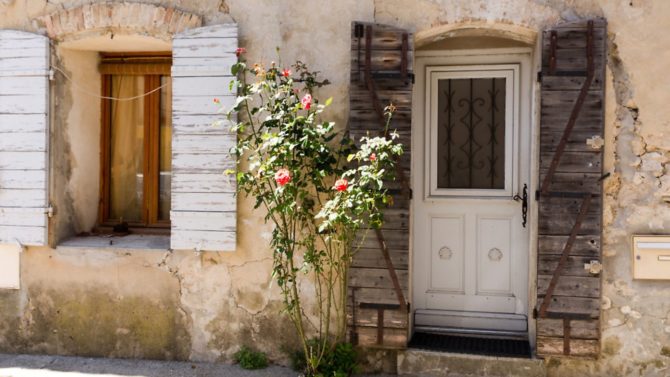How do non-EU residents buy a property in France?


Plenty of Americans, Australians and other non-EU residents own a property in France so there is no reason why you can’t. Here is all the information you need on buying a property in France
If you’re from a country outside the EU and dream of owning a home in France, there may be more hoops to jump through than for EU or French nationals, but there’s no reason why your dream can’t become a reality.
Buying a property as a non-EU resident
The process for buying a property in France is the same for non-EU nationals as it is for those inside the EU, and indeed, for French nationals, although the amount of time you can spend at your property will depend on your visa/residency status.
As always when buying a property abroad, it is important to understand the buying process, as it differs from country to country. In France, for example, you must always use a notaire to buy or sell a property.
When buying or travelling from a distance it is all the more important to do your research so you can make the most of the time you have in France looking for a property. There is much you can do before you go and it will also pay dividends to build good relationships with property professionals who will be on hand to help you.
A good agent is worth their weight in gold, and you’ll often find that in France they’ll go the extra mile to help you. For example, they may well recommend builders and assist you with insurance needs. It may also be worth using a property finder to do the legwork for you. There are plenty of English-speaking agents on hand, but those buyers who speak neither French nor English will need to factor in translation, both verbal and written, and especially for legal contracts.
___________________________________________________________________________
Don’t miss
Is now a good time to buy a property in France?
Brexit: will I still be able to buy a property in France?
The visas you will need as a non-EU resident in France
___________________________________________________________________________
Inheritance rules for non-EU residents
An important aspect to consider when buying a property in France is inheritance law; in accordance with the EU Succession Regulation that came into force in 2015, the inheritance rules of either France or your home country may apply, depending on your circumstances.
“Now that France is a member state of the EU Succession Regulation, non-French inheritance law rules may well be relevant in relation to the French property, in the event that the owner should die with the French property being included in the estate,” comments Matthew Cameron, of Ashtons Legal. “Despite the fact that this regulation will have been intended in part to simplify international estate administration, it can lead to certain difficulties. Notaires in France will still need to deal with the French part of the estate, yet they may be obliged to impose the inheritance rules of another jurisdiction, whatever jurisdiction that may be.”
A specialist firm dealing with French law and tax may be able to advise on how best to structure the French property purchase, and discuss what form of wills may be suitable, if any, but local advice from your home country is important too. “Even if a non-EU buyer remains resident outside of France, their death may give rise to an obligation to pay inheritance tax in France, generally in relation to the value of the estate in France,” adds Matthew.
“French inheritance tax is personal to each beneficiary. Exemptions may apply, and the rates of tax and level of tax-free allowances will vary depending on the proximity of the relationship between the deceased and the beneficiary. It is prudent to seek advice on potential French inheritance tax liabilities at an early stage. It’s important to establish if there are any consequent tax liabilities in the buyer’s home country, and whether any tax relief can be claimed against tax already paid in France.”
Another point to take into consideration is French wealth tax, as Matthew explains: “This may be a factor where the net value of the French estate is greater than the minimum threshold (€1.3m in 2017). What is comprised in the French estate may depend upon a person’s circumstances. If the owner lives in a jurisdiction where wealth tax applies then it is possible that the French wealth tax could be credited against the tax due, although local advice would be necessary here.
“There may well be tax rules to observe both in France and in the home jurisdiction. Rules vary between countries so it is important to ensure that local advice is sought from a person’s jurisdiction of residence in addition to any French tax and law requirements.”
___________________________________________________________________________
Don’t miss
10 insider tips for successful househunting
All you need to know about French matrimonial regimes before you buy a property
___________________________________________________________________________
Currency exchange
When buying property or making large payments in a country that uses a different currency to your own, planning ahead can save you considerable sums. “You will need to think about the potential impact of the exchange rate on your purchase, and consider how events in your own country, and in Europe will affect that rate,” advises currency expert Matthew Harris, of Cambridge Global Payments.
“With an average completion time of two to three months, exchange rates can, and often do, move in excess of 10%, meaning you could pay significantly more for your property than you might have budgeted. In addition, your bank may be charging commissions or offering poor exchange rates that mean you pay more than you need to.
“A currency specialist can help manage this exchange rate risk, and protect you from any falls. You can even lock in your exchange rate when you make an offer, so you know exactly how much you will have to pay in your own home currency when it comes to complete.
“For a client in the US, the dollar is currently near to the strongest levels we have seen in a decade, meaning you currently have high buying power, with Australians and New Zealanders in a similar position, albeit only at highest levels since 2012,” Matthew adds.
“The combination of low house prices and a weak euro have put foreign investors in their strongest position possibly of all time. It is important to speak to a specialist who can help you capitalise on these gains.”
___________________________________________________________________________
Don’t miss
Ways to save money on currency exchange
What will happen to currency exchange rates in 2017?
___________________________________________________________________________
Getting a mortgage as a non-EU resident
If you need a loan or mortgage to finance the purchase of your property, it’s definitely worthwhile looking into using a French mortgage and taking advantage of the low interest rates currently on offer. This is true for buyers from both EU and non-EU countries. It’s a good way to mitigate exchange rate risk, and you can always pay it off later when exchange rates move in your favour. Furthermore, you may find that only a French bank will be able to lend against the property you want to buy.
The mortgage application process is the same regardless of your home country, although there may be limitations on non-EU borrowers.
“Contrary to popular belief, being a non-EU national does not stop you from being able to borrow in France; it may however limit your options slightly,” explains Simon Smallwood of International Private Finance. “While there are banks in France who will consider other nationalities, such as Americans and Australians, the options are slightly more limited than for an EU national.”
“With fewer banks currently able to lend to non-EU nationals, it can mean that the product range is more restricted. The maximum loan to value that an American or Australian buyer could achieve would be 80% as opposed to an EU national who could look to borrow up to 85%. This is an area that could be set to change with some banks looking to focus more on lending to clients who are from outside of the EU.
“When looking at the products themselves, a non-EU national would be limited to a repayment mortgage whereas an EU national would have the option of interest-only as well.
“There are limitations on which nationalities the French banks can and cannot finance; an informed broker will be able to confirm whether or not you would be eligible.”
Like this? You might enjoy:
Where you can buy a property in France for under €100,000
Common mistakes made by French property buyers that you should avoid
Share to: Facebook Twitter LinkedIn Email
More in Brexit


